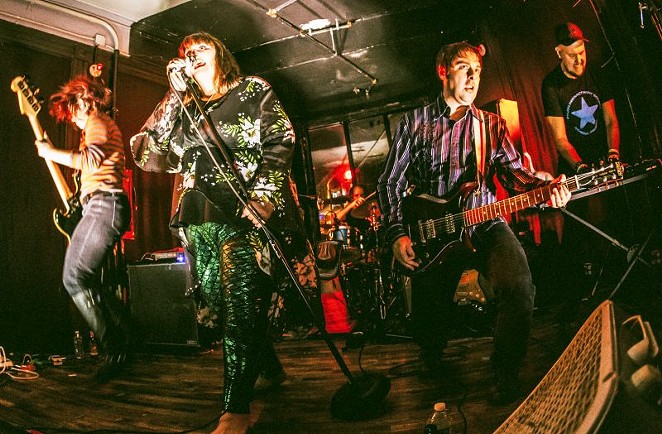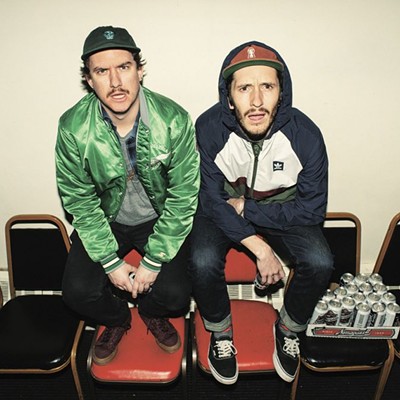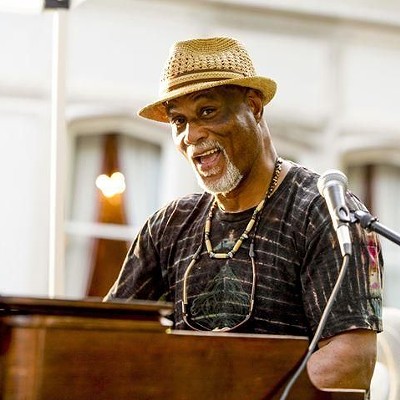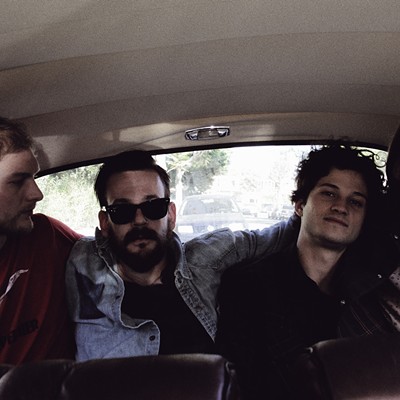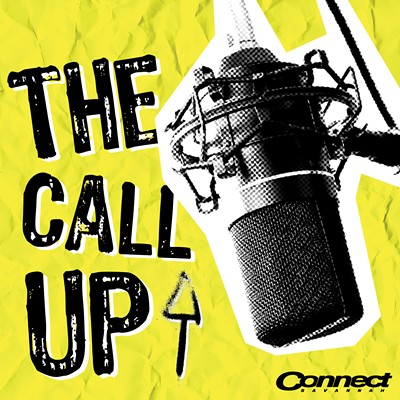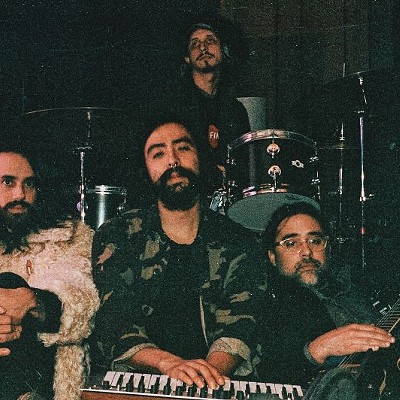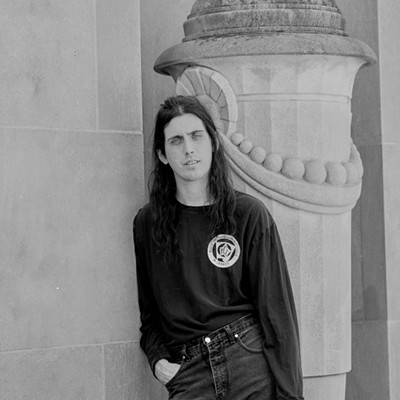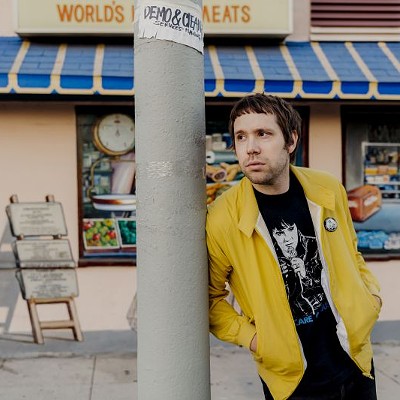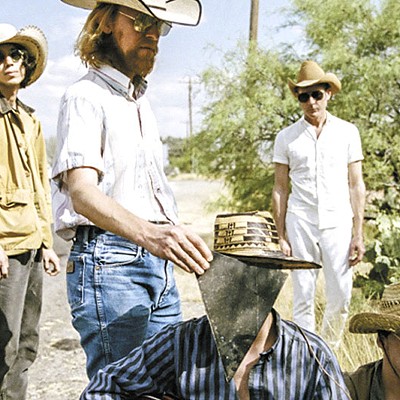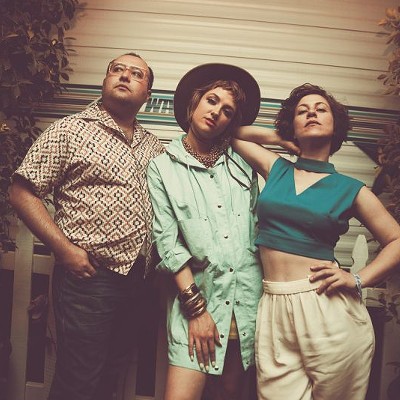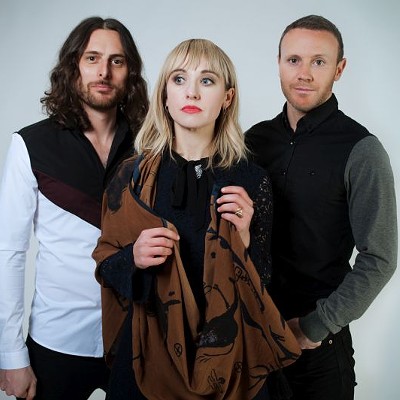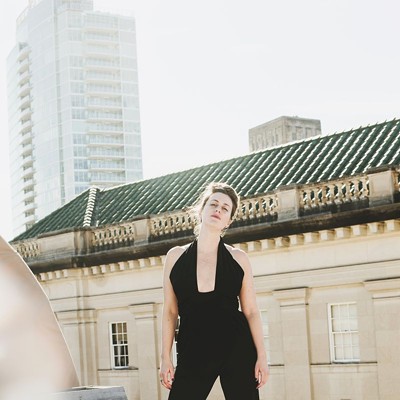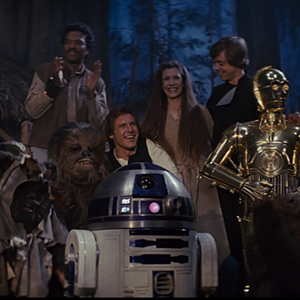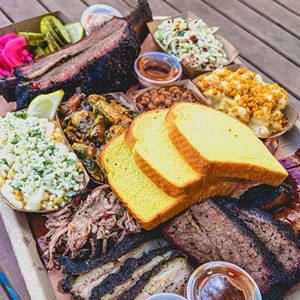IT'S impossible to have a conversation about the Athens, Georgia, music scene without Pylon coming up. The legendary and hugely influential band formed at the University of Georgia in 1979 and achieved great critical acclaim in the few years that followed, before going their separate ways.
They reunited a number of times over the years in short bursts, but they effectively retired following the death of guitarist Randy Bewley in 2009.
In 2014, singer Vanessa Briscoe Hay formed Pylon Reenactment Society with an entirely new lineup of Athens musicians. PRS is now keeping the music and legacy of Pylon alive, while also releasing new music of their own.
The new-look band has garnered acclaim for their performances since forming, and has breathed new life into the groundbreaking combination of art rock, post-punk and new wave that Pylon created in the early 80s.
Ahead of the band’s performance at Savannah Stopover Music Festival, we spoke to Hay and guitarist Jason NeSmith about Pylon’s history, forming Pylon Reenactment Society, and more.
I’ve been a Pylon fan since I was a kid! The first time I ever heard a Pylon song was R.E.M.’s cover of “Crazy.”
Hay: That happened with a lot of people!
NeSmith: That’s how it happened with me, too [laughs]. I was in middle school and high school when R.E.M. was getting popular, and somebody turned me on to the Dead Letter Office record. I thought “Crazy” was the best R.E.M. song.
Vanessa, tell me a bit about how Pylon formed?
Hay: Basically, Randy Bewley had an idea to form a band as an art project. His roommate at the time was Michael Lachowski, and he convinced Michael that it was a good idea even though Michael thought there were too many bands and there was too much going on. They approached it as artists and decided on what instruments to play, and then came back Randy on guitar and Michael on bass.
Randy came up with a tuning that he thought was the correct guitar tuning but it wasn’t. It’s a brilliant tuning, and it’s what really set the Pylon sound apart at the beginning.
Curtis [Crowe] was their landlord at Michael’s studio, and he heard them practicing these riffs over and over for hours. Curtis and his friend were listening to it through the floor, and his friend said, “It sounds like they need a drummer.”
Curtis was a very, very good drummer. Very solid and energetic.
NeSmith: I’d like to interject very quickly - I like to say that he sounds like a carpenter who plays drums. Every time he hits a snare drum it sounds like a nail going into a board.
Hay: That’s a perfect description, because he actually does have those skills.
So, Randy had the idea of asking me - I’d been in art classes with Michael and I knew both of them quite well. So I came in and auditioned on Valentine’s Day 1979, but they didn’t say anything at the end of the audition. The next day they were like, “Okay, you’re in.” Then they explained to me the premise - the premise was that we would go to New York, getting written up in the New York Rocker, and then disband.
Like any art project, it had to have this goal like it was an art project. I was like, “I’m in. That’s not going to take a whole lot of my life up.” I was just hanging around town waiting for my first husband to graduate college.
So the first time we played was above [local Athens record shop] Chapter Three Records, and people just stared at us. They didn’t know what to think. The second time we played was almost the same reaction, but the third time we played was this show out in the country and the B-52s came.
From the very first time they started dancing like maniacs, and then everybody started dancing. We didn’t really plan to be a dance band, but it kind of turned into it.
In 1983, we opened for U2. We had a booking agent who thought it was a real good idea. They were very nice to us, but it was horrible because it was U2’s first U.S. tour and Curtis said it was like opening for God. Nobody wanted to see us, and it just wasn’t our crowd. People were yelling at us, and it was just a horrible experience.
But [the band] said, “We’d like you to open the entire rest of the tour for us.” And we said no! It just wasn’t our crowd. Our agent asked why we were even in the business if we didn’t want to take opportunities, which made us think, “Why are we in this business?”
We made the decision that we were going to disband at the end of the year, and that’s when we broke up for the first time.
Let’s fast forward a bit and talk about PRS. Jason, when did you first get involved in reviving the Pylon catalog in this new band?
NeSmith: I entered the world of Pylon fandom when they put out the hits CD in 1988 or '89. I was going to the Berklee College of Music and was surrounded by guys playing really complicated jazz scales and competent drumming, all of this very polished sounding music. There was nobody that I could connect with to appreciate this music.
Pylon was coming to Boston and I was too young to go see them, so I missed them. By the time they reunited in 2004, I was touring with a bunch of bands. I’d come to Athens in part because I watched Athens, Georiga Inside Out and thought that was a great way to live, so I heeded the call.
I was playing at the 40 Watt when they started their set at Little King’s, so as soon as we were done we packed up our gear and ran over there. It was just packed.
So my world and Vanessa’s world started to merge when she asked [PRS bassist] Kay Stanton to be the bass player for her band Supercluster, and eventually I got involved in a production role. When Randy passed, I joined as a guitar player. So we’ve been involved in each other’s musical lives and have become really good friends.
How does it feel for you to be playing this music that has meant so music to you and be part of sort of propelling the legacy of Pylon even further?
NeSmith: Well, it's funny - I see pictures of myself on stage and I look sort of stoic and serious. But in fact, it's a very emotional experience for me.
I feel like I have two purposes — one is to understand and honor what the original Pylon band was doing and especially what Randy did, and the other is that we’re not going to be a novelty or a retro act. We have to move forward.
So I’m doing both, and it feels both reckless and responsible at the same time [laughs].
When it comes to new music, I’d imagine there really aren’t many preconceived ideas of what the band should sound like. That was always the deal with Pylon, it seems. How do you balance writing new music for this band that’s also playing this beloved back catalog?
Hay: Well it is different people, but we use Pylon as sort of our guiding star. To be honest, I'm older now so lyrics that I write for this band are going to be different.
But the way I approach it is the same, and the song itself suggests to me which words I use. Either I’ve already written a poem, or I listen to the song later, or as [the band] is playing I write words that are suggested by the music itself.
That’s just how I did it with Pylon. Every song came about in a different way. You just have to be open to being able to create something without being locked in.
You have to be open to just doing what the song calls for.

